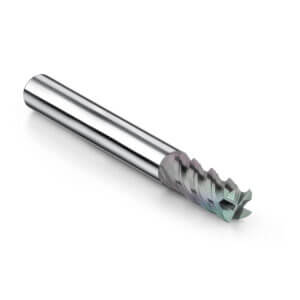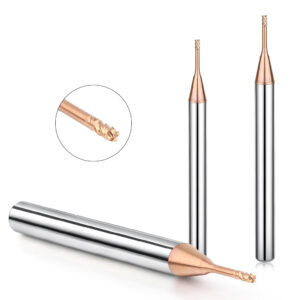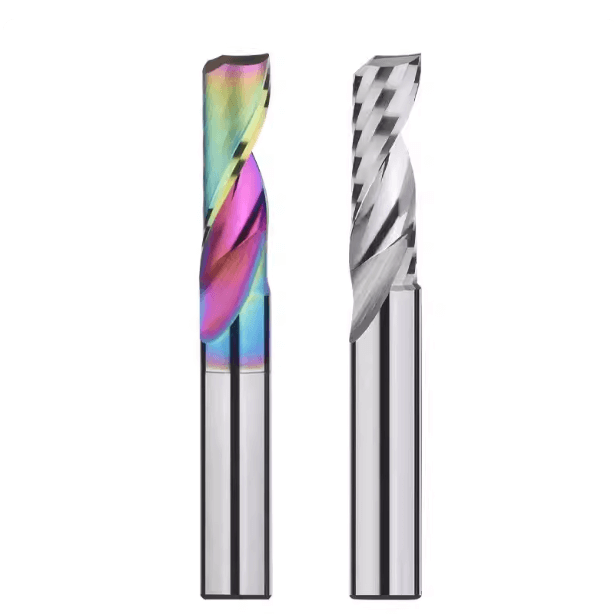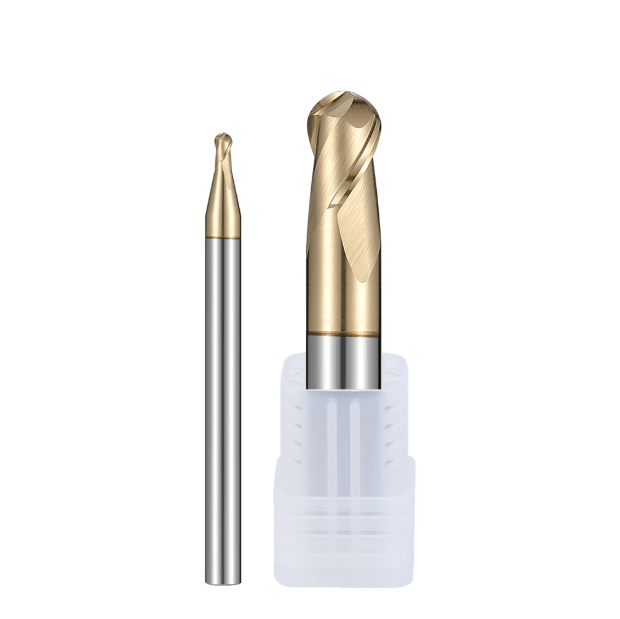The global manufacturing industry continues to evolve rapidly, making end mill tools among the most essential cutting tools in CNC machining. Whether in mold making, aerospace, automotive parts, or precision component machining, tool performance directly affects production efficiency and product quality. Solid carbide end mill tools are increasingly preferred by engineers for machining high-strength materials due to their hardness, wear resistance, and thermal stability.
With growing market diversification, engineers and procurement teams not only need to understand common types of end mill tools—such as flat end mills, ball end mills, corner radius end mills, and dovetail end mills—but also want to evaluate the overall capabilities of end mill tool manufacturers. Different manufacturers offer advantages in product ranges, coating technologies, customization capabilities, and delivery times. For companies with specialized machining needs, manufacturers offering custom end mill tools are particularly attractive because they can provide solutions tailored to specific materials and processes.
By 2025, the global competitive landscape is shifting: European and American manufacturers will continue leading in high-precision tooling, while Asian manufacturers are rapidly gaining ground thanks to cost advantages and flexible customization services. This article provides a global analysis of the top ten end mill tool manufacturers, covering tool types, material properties, manufacturer comparisons, and market trends, helping engineers and procurement professionals make informed decisions.

What is an End Mill Tool?
End mill tools are some of the most widely used cutting tools in CNC machining. They are designed for milling, contouring, grooving, and machining complex surfaces. Typically made from high-hardness materials like HSS or solid carbide, these tools withstand high speeds and cutting forces while maintaining machining accuracy and tool life.
From mold making and automotive components to aerospace and electronics, end mill tools enable high-quality cutting across diverse applications. Engineers consider tool material, coating technology, tool tip geometry, and cutting parameters when selecting tools. These factors directly affect machining efficiency, surface finish, and tool longevity.
The Role of End Mill Tools in CNC Machining
End mill tools are essential for achieving high-precision CNC machining. They perform straight-line milling, contouring, slotting, and curved surface machining. By combining different tool diameters, tip geometries, and helix angles, engineers can meet a wide range of machining requirements.
High-quality solid carbide end mill tools excel in high-speed cutting of hard materials like stainless steel, titanium alloys, and aluminum alloys. Their wear resistance and hardness reduce tool wear and maintain cutting accuracy. For complex 3D surfaces, choosing the right type of end mill tool helps minimize surface waviness and machining errors.
Common Types of End Mill Tools
Common tTypes of end mill tools include:
-
Flat End Mills: Ideal for flat milling, grooving, and contouring; they produce smooth bottom surfaces.
-
Ball Nose End Mills: Spherical tips for 3D curved surfaces and complex mold contours, reducing tool marks.
-
Corner Radius End Mills: Extended tip radius increases tool life and reduces workpiece stress.
-
Dovetail End Mills: Mainly used for dovetail grooves in molds and mechanical transmission parts.
Selecting the appropriate end mill type and cutting parameters maximizes machining efficiency and surface quality.
Why Solid Carbide End Mill Tools Are Popular
Solid carbide end mill tools are preferred due to high hardness, wear resistance, and thermal stability. Compared to HSS tools, they can withstand higher cutting speeds and maintain surface quality.
These tools are versatile for materials such as aluminum alloys, copper, titanium alloys, and high-hardness steels. Custom end mill tools can adjust diameter, helix angle, and coating to meet precision machining requirements for specialized workpieces. Combining the right Types of End Mill Tools with solid carbide tools improves productivity, lowers costs, and extends equipment life.

Key Criteria for Evaluating End Mill Tool Manufacturers
Choosing the right end mill tool manufacturer is critical for achieving efficiency and product quality. Evaluating manufacturers should include material properties, production processes, product diversity, customization capabilities, and supply chain reliability.
Solid Carbide End Mill Tools vs Coatings: Performance Comparison
Tool performance comes from material and coating. Solid carbide end mill tools are ideal for high-speed cutting of hard materials. Coatings such as TiN, TiAlN, or diamond enhance wear resistance, heat tolerance, and surface finish.
Understanding the carbide composition, material source, and coating process helps assess reliability and tool lifespan. High-performance tools reduce vibration and improve surface quality on complex parts.
Production Process and Quality Control
Top end mill tool manufacturers use advanced grinding, polishing, and inspection to ensure dimensional accuracy and cutting-edge precision. Rigorous quality control minimizes runout and vibration, which is especially critical for custom end mill tools used in high-precision applications.
Comprehensive End Mill Tool Types
Manufacturers with a wide range of types of end mill tools allow engineers to source multiple tools from one supplier, reducing costs and supply chain complexity. A diverse product line ensures flexibility for different materials and machining challenges.
The Importance of Custom End Mill Tools
Custom end mill tools are essential for high-precision or specialized material machining. Customization of diameter, tip angle, helix, and coating improves efficiency, tool life, and accuracy. Manufacturers offering flexible customization better support aerospace, mold making, and high-end mechanical applications.
Supply Chain and Delivery Cycle
Reliable delivery and inventory management directly affect production schedules. Leading manufacturers maintain fast shipping, robust supply chains, and rapid delivery for standard and custom end mill tools, reducing downtime and ensuring production continuity.

Top 10 Global End Mill Tool Manufacturers in 2025
The global end mill tool market is increasingly competitive. Demand for precision machining, solid carbide end mill tools, and customized solutions has created regional differences in technology, product lines, and services. This section analyzes representative manufacturers in the US, Europe, China, and Asia, along with emerging global trends.
Representative End Mill Tool Manufacturers in the United States
American manufacturers are known for high-precision tools and innovative coatings, excelling in aerospace, automotive molds, and high-end components.
Advantages:
-
Precise grinding ensures geometry accuracy and machining stability.
-
Advanced coatings improve wear resistance and heat tolerance.
-
Broad product lines cover multiple types of end mill tools.
-
Strong R&D enables custom end mill tool solutions for specialized needs.
Representative End Mill Tool Manufacturers in Europe
European manufacturers are valued for process stability and strict quality control, ideal for automotive, precision mold, and industrial machinery machining.
Advantages:
-
Rigorous QC ensures tolerance and durability compliance.
-
Comprehensive types of end mill tools coverage.
-
Specialization in high-hardness materials and custom end mill tool services.
-
Tools are durable and stable for continuous high-precision production.
Representative End Mill Tool Manufacturers in China and Asia
Asian manufacturers offer cost-effective solutions and flexible supply. Many now produce high-precision solid carbide end mill tools and offer custom end mill tool services.
Advantages:
-
Competitive pricing for high-volume production.
-
Comprehensive product lines covering diverse end mill types.
-
Customization available for specialized processes.
-
Fast supply chain and short lead times for dynamic production schedules.
Asian manufacturers are progressively moving into the high-end market through R&D and innovation.
Trends in Emerging Manufacturers in the Global Market
Emerging manufacturers are gaining attention worldwide.
Trends:
-
Focus on high-hardness materials and specialty alloys with solid carbide end mill tools.
-
Introduction of micro-tools and high-precision cutters for micromachining.
-
Growth of custom end mill tools for specialized applications.
-
Integration of digital manufacturing and intelligent tool management for efficiency and supply chain transparency.

Core Comparative Analysis of Different End Mill Tool Manufacturers
Global end mill tool manufacturers differ significantly in product performance, product variety, pricing, and service capabilities. Brand recognition alone does not guarantee machining efficiency or quality. By evaluating key indicators such as wear resistance, tool life, surface finish, coverage of types of end mill tools, and responsiveness in custom end mill tools, engineers and purchasers can make more informed decisions when selecting a supplier.
Product Performance
Product performance is one of the most important indicators of an end mill tool’s quality. High-quality solid carbide end mill tools provide superior hardness and wear resistance, maintaining tool life under high-speed, high-load conditions.
-
Wear resistance directly affects tool life and machining stability.
-
Tool longevity reduces production costs and tool replacement frequency.
-
Surface finish quality is critical; precision tools minimize surface waviness, reduce secondary machining, and improve overall efficiency.
Using premium solid carbide cutters tailored to material and process requirements ensures optimal performance.
Comprehensive Coverage of End Mill Tool Types
The range of types of end mill tools a manufacturer offers is a crucial factor. A broad product line—including flat-end mills, ball-end mills, corner radius mills, and dovetail mills—supports diverse machining applications and materials.
Manufacturers with comprehensive lines allow engineers to source multiple tools from one supplier, reducing procurement complexity and ensuring machining efficiency. For specialized applications, custom end mill tools provide essential flexibility.
Price and Lead Time
Price and lead time are critical when selecting an end mill tool manufacturer. While high-performance solid carbide end mill tools are more expensive, their extended tool life and superior machining quality lower overall costs over time.
Short lead times and a stable supply chain are equally important. Manufacturers capable of fast delivery and flexible inventory management minimize production delays and inventory pressure.
Responsiveness of Custom End Mill Tools
Top manufacturers offer more than standard tools—they provide custom end mill tools tailored to specific needs. Customization options include tool diameter, helix angle, tip geometry, and coating type, optimizing performance for particular materials and machining processes.
Robust customer support—including technical consultation, tool selection guidance, and cutting parameter optimization—is vital. Manufacturers that respond quickly to customer requirements improve machining efficiency and reduce production risk.

2025 End Mill Tool Market Trends and How to Choose the Right Manufacturer
The global end mill tool market is evolving with advanced manufacturing technologies and diverse material requirements. High-performance solid carbide end mill tools and custom end mill tools are in rising demand, while digital procurement and supply chain integration become essential for production efficiency and cost control. Key trends include material compatibility, tool upgrades, customization, and global supply chain integration.
More Material Compatibility
Industries like aerospace, EVs, and electronics demand end mill tools capable of handling high-strength, high-hardness, and composite materials (carbon fiber, titanium alloy, ceramics).
-
High-performance solid carbide end mill tools with optimized geometry and coatings handle challenging materials while maintaining surface quality and machining accuracy.
-
Choosing the right types of end mill tools and cutting parameters is essential for efficiency and precision.
Continuous Upgrades of Solid Carbide End Mill Tools
Solid carbide end mill tools are continuously improving in wear resistance, thermal stability, and machining accuracy. Advances in material composition, tool tip geometry, and coating technology enhance tool life and efficiency.
-
Micro-tooling and high-precision mold machining are increasingly supported.
-
Customers benefit from cost-effective machining solutions with tighter tolerances and better surface quality.
Rising Demand for Custom End Mill Tools Among High-End Customers
Standard end mill tools may no longer meet complex machining needs. Custom end mill tools are increasingly important for high-end manufacturing.
-
Customization options (diameter, helix, tip shape, coating) improve efficiency, extend tool life, and enhance surface finish.
-
Flexible custom end mill tool services offer manufacturers a competitive advantage.
Global Supply Chain Integration and Digital Procurement Trends
Globalized production and just-in-time manufacturing highlight the importance of supply chain management and digital procurement.
-
Intelligent inventory management and online tool selection platforms enable rapid access to solid carbide end mill tools and custom end mill tools.
-
Integrated supply chains allow manufacturers to respond quickly to customer needs across regions, ensuring flexibility and reliability.

Conclusion: How to Choose the Right End Mill Tool Manufacturer
Selecting the right end mill tool manufacturer is critical for CNC efficiency, quality, and cost control. Consider tool material, machining process, product types, customization capabilities, and supply chain reliability.
Considering Materials and Machining Requirements
-
Match workpiece material and machining process with the right types of end mill tools.
-
For high-speed or high-precision cutting, solid carbide end mill tools are ideal.
-
Ensure the manufacturer offers a broad range of tool types for complex or specialized processes.
Prioritize Product Performance and Long-Term Costs
-
Tool performance affects efficiency and costs.
-
High-quality solid carbide end mill tools reduce tool change frequency and defect rates, lowering total production costs.
-
Prioritize reliable products for better machining stability and surface finish.
Choose Standard or Custom End Mill Tools Based on Project Needs
-
Standard tools suit routine machining and standard materials.
-
Custom end mill tools are essential for high-end molds, aerospace parts, or specialized materials.
-
Selecting the right tool and manufacturer improves efficiency and provides flexibility for global competition.










